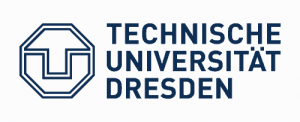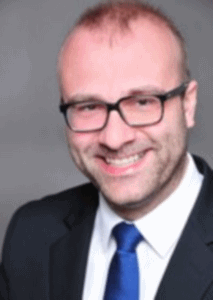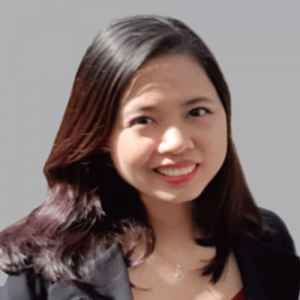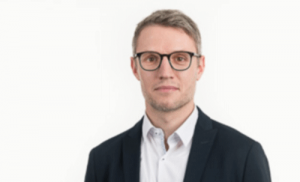 Technische Universität Dresden (TUD/TU Dresden) has its roots in the Royal Saxon Technical School that was founded in 1828. Today, Technische Universität Dresden is one of the largest technical universities in Germany and one of the leading and most dynamic institutions in the country. With 17 faculties in five schools, it offers a wide range of 124 degree courses and covers a broad research spectrum. Its focuses (Health Sciences, Biomedicine & Bioengineering, Information Technology & Microelectronics, Smart Materials & Structures, Energy, Mobility & Environment as well as Culture & Societal Change), are considered exemplary in Germany and throughout Europe. It is a university that unites the natural and engineering sciences with the humanities and social sciences, as well as medicine. This wide range of disciplines, which is unique in Germany, brings with it the obligation for the university to promote interdisciplinary and to contribute to the integration of science and society. More specifically: interdisciplinary cooperation among various fields is a strength of the TUD, whose researchers also benefit from collaborations with the region’s numerous science institutions – including Fraunhofer institutes, Leibniz institutes, and Max Planck institutes – through the unique DRESDEN-concept alliance. In recognition of the TUD’s emphasis on applications in both teaching and research, leading companies have honoured the university with currently fourteen endowed chairs. The TUD prides itself on its international flavour and has partnerships with more than 70 universities worldwide. Furthermore, TUD is the only university in the eastern German federal states with the distinction as a ‘University of Excellence’ and three approved Clusters of Excellence within the framework of the Excellence Strategy of the Federal and State Governments.
Technische Universität Dresden (TUD/TU Dresden) has its roots in the Royal Saxon Technical School that was founded in 1828. Today, Technische Universität Dresden is one of the largest technical universities in Germany and one of the leading and most dynamic institutions in the country. With 17 faculties in five schools, it offers a wide range of 124 degree courses and covers a broad research spectrum. Its focuses (Health Sciences, Biomedicine & Bioengineering, Information Technology & Microelectronics, Smart Materials & Structures, Energy, Mobility & Environment as well as Culture & Societal Change), are considered exemplary in Germany and throughout Europe. It is a university that unites the natural and engineering sciences with the humanities and social sciences, as well as medicine. This wide range of disciplines, which is unique in Germany, brings with it the obligation for the university to promote interdisciplinary and to contribute to the integration of science and society. More specifically: interdisciplinary cooperation among various fields is a strength of the TUD, whose researchers also benefit from collaborations with the region’s numerous science institutions – including Fraunhofer institutes, Leibniz institutes, and Max Planck institutes – through the unique DRESDEN-concept alliance. In recognition of the TUD’s emphasis on applications in both teaching and research, leading companies have honoured the university with currently fourteen endowed chairs. The TUD prides itself on its international flavour and has partnerships with more than 70 universities worldwide. Furthermore, TUD is the only university in the eastern German federal states with the distinction as a ‘University of Excellence’ and three approved Clusters of Excellence within the framework of the Excellence Strategy of the Federal and State Governments.
 Prof. Dr. Remmer Sassen joined TU Dresden in October 2019. He holds a Ph.D. (Dr.rer.pol.) from the University of Hamburg and habilitated at the University of Hamburg in 2017. Since November 2016, he has been managing the HOCH-N action field sustainability reporting in collaboration with Freie Universität Berlin and Universität Duisburg-Essen. In the past, Remmer Sassen carried out several international projects on sustainability reporting and sustainability management of firms and universities. His research topics relate primarily to external reporting of firms and universities (e.g., sustainability reporting, integrated reporting, risk reporting, and corporate governance reporting) as well as, corporate governance. He is the Assistant Editor of the International Journal of Sustainability in Higher Education (IJSHE) and has served as a visiting researcher at the John Hopkins University Campuses in Maryland, USA, and Sydney, Australia. Since October 2020, he has held the Professorship (W2) at the Chair of General Business Management, esp. Controlling and Environmental Management (with Tenure-Track) at International Institute (IHI) Zittau of TU Dresden and is the representative of the Chair of Sustainability Management and Environmental Accounting, where his current teaching responsibilities include courses such as Corporate Social Responsibility, Sustainability Controlling, and Sustainable Businesses.
Prof. Dr. Remmer Sassen joined TU Dresden in October 2019. He holds a Ph.D. (Dr.rer.pol.) from the University of Hamburg and habilitated at the University of Hamburg in 2017. Since November 2016, he has been managing the HOCH-N action field sustainability reporting in collaboration with Freie Universität Berlin and Universität Duisburg-Essen. In the past, Remmer Sassen carried out several international projects on sustainability reporting and sustainability management of firms and universities. His research topics relate primarily to external reporting of firms and universities (e.g., sustainability reporting, integrated reporting, risk reporting, and corporate governance reporting) as well as, corporate governance. He is the Assistant Editor of the International Journal of Sustainability in Higher Education (IJSHE) and has served as a visiting researcher at the John Hopkins University Campuses in Maryland, USA, and Sydney, Australia. Since October 2020, he has held the Professorship (W2) at the Chair of General Business Management, esp. Controlling and Environmental Management (with Tenure-Track) at International Institute (IHI) Zittau of TU Dresden and is the representative of the Chair of Sustainability Management and Environmental Accounting, where his current teaching responsibilities include courses such as Corporate Social Responsibility, Sustainability Controlling, and Sustainable Businesses.
 My Hanh Doan, M.A., has been a Research Associate at the Chair of Sustainability Management and Environmental Accounting at the Technische Universität Dresden since 2019. She holds a Master of Arts in International Business and Sustainability from the University of Hamburg and is now responsible for courses such as Sustainable Resource Management and Stakeholder Management at the Technische Universität Dresden. Her research topics are corporate and university sustainability reporting as well as corporate and university sustainability governance. She has more than 3 years of experience working as a Project Coordinator for corporates and social enterprises and has been engaging in the coordination tasks of university-related projects such as the DAAD-funded project German-Bangladesh University Co-operation for Sustainable Textiles (HEST) and the BMBF-funded project HOCH-N: Sustainability at Higher Education Institutions: develop – network – report. She was also a member of international social organizations such as Greenpeace and 180 Degrees.
My Hanh Doan, M.A., has been a Research Associate at the Chair of Sustainability Management and Environmental Accounting at the Technische Universität Dresden since 2019. She holds a Master of Arts in International Business and Sustainability from the University of Hamburg and is now responsible for courses such as Sustainable Resource Management and Stakeholder Management at the Technische Universität Dresden. Her research topics are corporate and university sustainability reporting as well as corporate and university sustainability governance. She has more than 3 years of experience working as a Project Coordinator for corporates and social enterprises and has been engaging in the coordination tasks of university-related projects such as the DAAD-funded project German-Bangladesh University Co-operation for Sustainable Textiles (HEST) and the BMBF-funded project HOCH-N: Sustainability at Higher Education Institutions: develop – network – report. She was also a member of international social organizations such as Greenpeace and 180 Degrees.
 Tom Günther is a member of the Erasmus+ team at TU Dresden’s European Project Center (EPC). The EPC is a unit that supports researchers at every stage of the lifecycle of projects funded by the European Commission. Tom holds an MSc degree in Business Management. He has been involved in several national and international projects for several years.
Tom Günther is a member of the Erasmus+ team at TU Dresden’s European Project Center (EPC). The EPC is a unit that supports researchers at every stage of the lifecycle of projects funded by the European Commission. Tom holds an MSc degree in Business Management. He has been involved in several national and international projects for several years.

